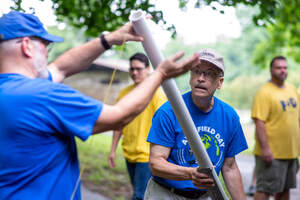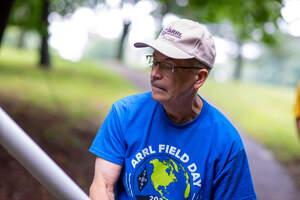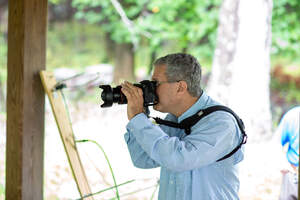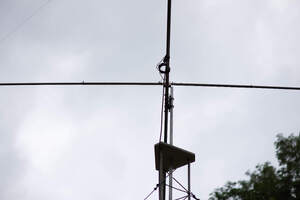Hi Bill.
I found this:
**Operating System:**
- **Chromebooks** run Google's Chrome OS, which is a lightweight and straightforward operating system. It primarily depends on internet connectivity, with most applications and data being stored in the cloud. As a result, it has faster boot times and tends to perform well on less powerful hardware.
- **Windows PCs** run Microsoft's Windows operating system, which is more powerful and versatile than Chrome OS. It's designed to run software locally, although it also supports cloud-based applications. Windows has a much larger software library, especially for professional and gaming applications.
**Hardware and Performance:**
- **Chromebooks** are generally less powerful than Windows PCs in terms of hardware. They have less processing power, memory, and storage. However, due to the lightweight nature of Chrome OS, this doesn't usually hinder the performance for the tasks they're designed for, such as web browsing, video streaming, and using web applications.
- **Windows PCs** range widely in terms of hardware and performance. You can get everything from budget laptops to high-end gaming PCs. This allows Windows PCs to handle a wider range of tasks, including resource-intensive tasks like gaming, video editing, and 3D rendering.
**Software and Applications:**
- **Chromebooks** primarily run web-based applications, though they also support Android apps and Linux applications. However, many desktop applications (like Adobe's creative suite) are not available. They are typically used for web browsing, streaming, and productivity tasks.
- **Windows PCs** have a larger selection of applications, both desktop and web-based. They can run most professional software, many games, and have a wider range of utilities and tools available.
**Price:**
- **Chromebooks** are generally cheaper than Windows PCs, making them a popular choice for educational institutions and people who mainly need a device for web-based tasks.
- **Windows PCs** have a wide range of prices, depending on the specifications. High-end Windows PCs are more expensive than the most expensive Chromebooks.
**Security and Maintenance:**
- **Chromebooks** are generally considered more secure due to their sandboxing technology, verified boot process, and the fact that most data is stored in the cloud. They also require less maintenance, with updates being quick and unobtrusive.
- **Windows PCs** require more maintenance, including regular software updates, which can take longer and require reboots. They can also be more vulnerable to viruses and malware, though this can be mitigated with good security practices and antivirus software.
**Conclusion:**
In conclusion, the choice between a Chromebook and a Windows PC largely depends on your needs. If you mainly use web-based applications and want a low-maintenance, secure, and affordable device, a Chromebook might be a good choice. If you need to use specific desktop applications, want to play games, or need more powerful hardware, a Windows PC would likely be a better choice.
Regarding Chromebook and amateur radio, this is what I found:
The usefulness of Chromebooks for amateur radio greatly depends on what specific tasks you intend to accomplish. If you primarily need a device for simple tasks such as learning, referencing, and using web-based tools and Android applications related to amateur radio, then a Chromebook could potentially serve you well.
Here are some specific ways you might use a Chromebook for amateur radio:
1. **Web-based Tools**: There are many online resources available for amateur radio operators, including web-based logbooks, propagation forecasts, band plans, and call sign databases. Chromebooks are designed to excel at web-based tasks, making them a good choice for these activities.
2. **Android Apps**: The Google Play Store includes several amateur radio apps that are compatible with Chromebooks. These apps range from learning tools and reference guides to software for decoding digital modes. For example, apps like Morse Trainer, Ham Radio Exam Prep, and EchoLink are available on Android and can be used on a Chromebook.
3. **Linux (Beta) on Chrome OS**: For more advanced users, Chrome OS has a feature that allows you to install a Linux (Beta) environment. This feature potentially enables the use of some Linux-based amateur radio software. But keep in mind that not all Linux applications will run perfectly in this environment, and performance might not be as good as on a traditional Linux or Windows system.
However, Chromebooks do have limitations when it comes to amateur radio. If you're interested in software-defined radio (SDR) or digital modes requiring more robust desktop software, the Chromebook might be more challenging to use. Directly interfacing with radios using hardware connections (like a USB interface for digital modes or rig control) can also be problematic due to Chrome OS's limited support for such devices.
To summarize, a Chromebook can be useful for certain amateur radio activities, especially those centered around web-based tools and Android apps. However, they may not be the best choice for more advanced or hardware-intensive amateur radio tasks. It's always best to consider your specific needs and requirements before choosing a device.
My personal notion is that chromebooks are not ideal to run the core amateur radio applications such as logging software. For the online ones, you'll be fine. If you're looking for something to replace your PC for the usual suspects (browsing, word processing, spreadsheets, photos, etc.) you'll be fine. For pure amateur radio apps, I would argue that you will not be happy with a chromebook.
I hope this helps Bill.
Jim










